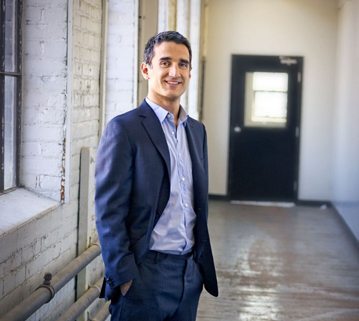The best part of income properties is the money you make from rent. Why else would you take on the responsibility of tenants? In a province whose laws are definitely on the side of the renter, I’m sure some landlords scratch their heads and wonder what they have gotten themselves into. Still, when it works, it can be one of the smartest decisions you could make.
There are two main ways to make money on income properties. First, the obvious: by collecting rent; and second: through an appreciation of the value of your property over time. The second can be a little riskier since your home will not always appreciate in a down market. If you wait long enough, however, history has shown us that with enough time, your income property, at least in Toronto, will very likely increase in value.
In a city like Toronto, you may collect enough in rent to cover the cost of the mortgage, the property tax, and utilities, and even squeak out a small positive case flow, but it won’t be easy or even possible in most markets. Even though you can collect higher rents in the city, homes also cost more. The upside to Toronto is that it is a good place to grow your equity through the appreciation of your home. Over time, Toronto has historically been a place where your asset increases in value more than outside of the city. And best of all, if your investment appreciates enough, you can leverage your asset to pull money out of your income property and consider buying another one.
While some investors buy a condo or a single family dwelling some buy a duplex or triplex so they can live in one unit and have the to rent help cover the cost of buying a larger property. It’s a good way to get in the market, build equity, and have income to help pay down your mortgage. It’s also a good way to claim deductions on your income taxes as far as the hydro, heat and electric bills go, as well as insurance and the interest paid on your mortgage. Be careful with how many units your home has, though, if you are in pursuit of an income property. The property tax rates for “multi-residential” rental units have a much higher tax rate if you have more than 6 units.
In terms of where to buy an income property, established neighbourhoods have more expensive properties but you will be able to collect higher rent than in a comparable property in an emerging neighbourhood. Of course, if you are handy or have the ability to do the right fix ups, a good reno in any neighbourhood will allow you to collect more money in rent, provided you change tenants or can justify the rent increase to existing tenants.
If you acquire existing tenants or if you have some longer than a year, the city allows for a maximum rental increase each year. And let me tell you, they have not been very generous these past years, from a landlord’s perspective. Regardless, rents go up, and if you hold on to your property, you will likely be collecting more in rent the longer you own your home. So, you may not start with a negative cash flow, but you could easily move into positive cash flow with enough time in an improving market.
With newer condos, these rules do not currently apply. You could increase your rent as much as you want for your tenants depending on when your condo was built. If your building was built any time after November 1, 1991, rent increase rules don’t apply. The building and their tenants are unprotected by provincial rent control laws.
If you’re looking for a good neighbourhood in which to rent, you may want to what renters want. Renters prefer to be near where they work and play. Are you on a subway or streetcar line? Are there grocery stores, pharmacies and a commercial strip nearby? If your tenants drive, do they have parking? As an investment, you may want to look toward future transportation arteries like the Eglinton subway line.
And always do your homework when taking on new tenants from a previous owner. Make sure there is no outstanding rent for tenants to pay and be certain the tenants are in good standing. Take a look at the rental agreement, and make sure to read through it carefully to fully understand the parameters of your future tenants. Do your best, to determine if you have good tenants, because it will be costly and difficult to get rid of them.
In my experience, most tenants are reasonable. They want to have a nice home too. Some may drive you a little crazy, but at the end of the day, they are helping you pay off a mortgage and build equity just by living in your home. All you have to do is keep that home functional and pleasant.


